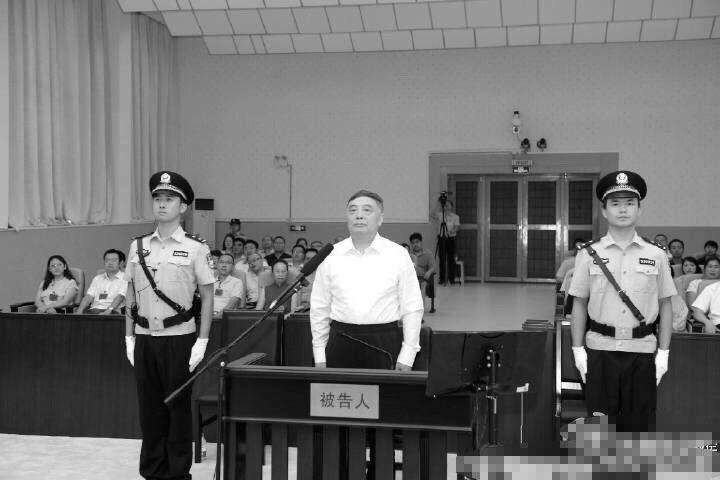Nicknamed the “50-cent party” after the amount they are said to be paid for each online post they make, they are China’s online trolls. Patrolling cyberspace, they work to spin public opinion in favor of the Chinese Communist Party and slander those who have failed to toe the Party line.
On Aug. 25, however, these commentators were nowhere to be seen on China’s social media to defend the person considered to be the father of the online group, after he admitted to corruption charges in a court in China’s southwestern province of Guizhou. Perhaps the 50-cent party does not know that he was the first person to put together a group of paid online trolls.
Qiu He, former deputy party secretary of southwestern China’s Yunnan Province and former party secretary of China’s southern city of Kunming, admitted accepting bribes of over 24.3 million yuan (about $3.6 million) to help others push forward projects and get bank loans, reported state-run Xinhua. His sentencing will come at a later date.
On Sina Weibo, China’s popular microblogging site, many netizens were quick to point out Qiu’s past wrongdoings, with some netizens questioning whether that was all the money he had made illegally.
A netizen with the moniker “Underneath the Stars Afar” from Yunnan wrote, “When Qiu He was here, there were villages being demolished, markets being moved, airport stations relocated out of the city and schools being moved to the countryside...It might appear to be some kind of political achievement, but it was about pocketing money, which enriched a lot of company bosses and Party officials.”
The netizen “Small Cobbler1977” wrote, “You sold all of the schools and hospitals! How dare you speak of political achievement?”
Qiu, during his tenure as party secretary of Suqian, a city in the coastal province of Jiangsu (2001-2006), was infamously known for privatizing the city’s schools and hospitals. The reform turned out to be a disaster, as the resulting inadequate medical care forced the city authorities to scramble to build a public hospital with over 2,000 beds in 2011.
It was also in Suqian in 2005 that the the city’s propaganda bureau hired 26 online commentators for the purpose of “guiding public opinion,” reported Chinese news portal Sohu in April 2005. The story became the first public instance of Chinese regime authorities hiring people to manipulate online opinions.
While Chinese netizens reminisced about Qiu’s’ political career, little did they know that a U.S.-based website has named him to be a perpetrator of human rights abuses.
Qiu was named by Minghui.org, a website that carries first-hand information about the persecution of Falun Gong in China, as active in that persecution, both during his tenure in Suqian and later in Kunming.
Falun Gong, also known as Falun Dafa, is an ancient spiritual practice with slow, meditative exercises and moral teachings. Adherents of the practice in China have faced brainwashing, torture, and imprisonment since July 1999, when then Party leader Jiang Zemin started a campaign to eradicate the practice.
One of the victims at the hands of Qiu was Peng Sufen, 75, who was given a one-year sentence by the Kunming Intermediate People’s Court for hanging up banners about Falun Gong in the city, according to Minghui.org. Peng was detained in September 2013 after police broke in the home of a fellow adherent and found that they were reading books about Falun Gong together.
The comments of a few netizens who remember Qiu as the founding father of the online trolls were deleted, but their remarks can be read on Free Weibo and Weiboscope, websites that track censorship on China’s social media.



